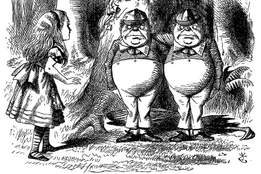1
: an act or means of easing or relieving (as from discomfort)
2
: an interest in land owned by another that entitles its holder to a specific limited use or enjoyment
also
: an area of land covered by an easement
Love words? Need even more definitions?
Merriam-Webster unabridged










Share